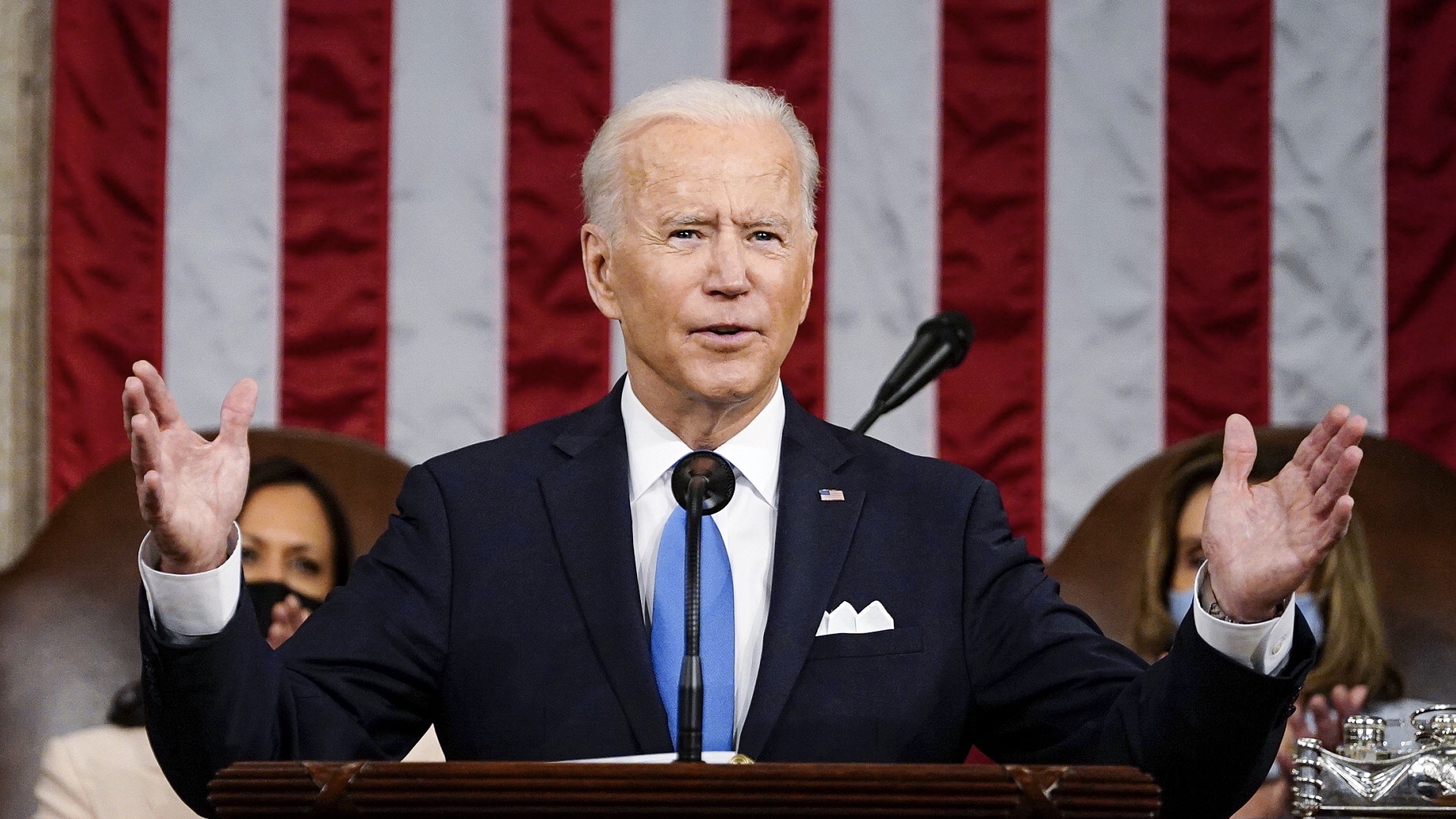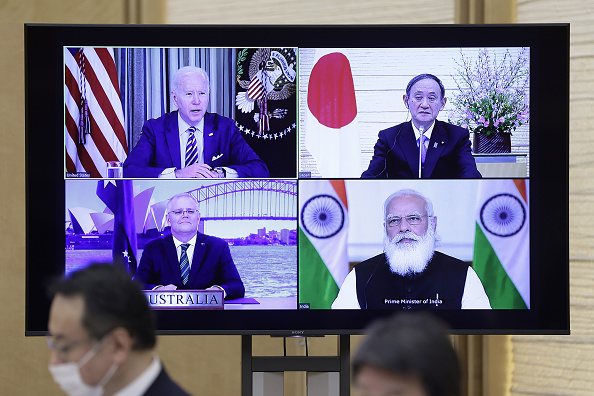
U.S. President Joe Biden speaks to a joint session of Congress in the House Chamber at the U.S. Capitol in Washington, D.C., April 28, 2021. /VCG
U.S. President Joe Biden speaks to a joint session of Congress in the House Chamber at the U.S. Capitol in Washington, D.C., April 28, 2021. /VCG
Editor's note: Andrew Korybko is a Moscow-based American political analyst. The article reflects the author's views and not necessarily those of CGTN.
U.S. President Joe Biden's first address to Congress since his inauguration was mostly focused on domestic issues, but one part in particular caught the attention of international observers. That's when the American leader compared the U.S. Indo-Pacific military presence to NATO. In his own words, "I also told President Xi [Jinping] that we will maintain a strong military presence in the Indo-Pacific just as we do with NATO in Europe, not to start conflict, but to prevent conflict." This was preceded by him proclaiming earlier in his speech that "We're in a competition with China and other countries to win the 21st century."
In other words, Biden believes that the U.S. NATO-like presence in the Indo-Pacific will help America win the 21st-century competition that it convinced itself that it's in with China. This is a dangerous way to approach the situation in this strategic transregional space. The comparison itself is provocative too because NATO has a history of destabilizing military involvement in Europe that its perception managers deceptively portray as "peaceful".
Far from being a force for peace in order to "prevent conflict" like Biden now claims as part of his historical revisionism, NATO actually has worsened conflicts in some places.
This observation raises even more serious concern for the Indo-Pacific as a result of Biden's comparison of U.S. forces there to NATO's in Europe. It might very well be the case that the emerging NATO-like alliance of the Quad between itself, Australia, India, and Japan might consider launching similar so-called "humanitarian interventions" in this transoceanic space stretching from Eastern Africa to the western shores of South America. After all, NATO's modus operandi for involvement in (or rather, the direct exacerbation of) European conflicts was that pretext, which could bode negatively for Myanmar due to its latest unrest over the past few months.

The virtual Quadrilateral Security Dialogue (Quad) meeting, March 12, 2021. /Getty
The virtual Quadrilateral Security Dialogue (Quad) meeting, March 12, 2021. /Getty
What's interesting about Biden's tacit admission that the Quad is actually a so-called "Asian NATO" like many feared that it truly was this entire time despite prior denials is that India, which has the potential to function as the bloc's top Asian ally, has previously insisted that this isn't the case at all. India's External Affairs Minister Subrahmanyam Jaishankar said as recently as mid-April at India's Raisina Dialogue that the Quad isn't an "Asian NATO", nor does his country harbor "that kind of NATO mentality." With this in mind, Biden's stunning declaration on April 28 might make the South Asian state rethink its commitment to the bloc.
It might very well turn out to be that India was hoodwinked into joining the Quad and going along with some of its latest schemes because it sincerely didn't believe that it was meant to function as an "Asian NATO." The country proudly pursues a policy of multi-alignment that's openly intended to maximize its precious strategic autonomy, yet remaining fully committed to the Quad, especially in military dimension, but Biden's surprisingly frank revelation would arguably endanger that. Observers can therefore expect for that part of his speech to be intensely discussed in New Delhi in the days to come.
Altogether, the world should actually be thankful to Biden for his candidness. It's about time that the U.S. admitted what it was up to with the Quad. Everyone deserved to know America's true strategic intentions with that emerging military bloc. Exactly as many suspected for so long, it now turns out that it was indeed meant to function as an "Asian NATO" by everything other than name. This in turn enables the countries of that strategic space to better prepare themselves for what might be to come, which could in the worst-case scenario be a warmongering drive in the future to launch invasions under the pretext of "humanitarian interventions."
(If you want to contribute and have specific expertise, please contact us at opinions@cgtn.com.)

